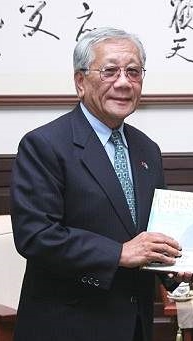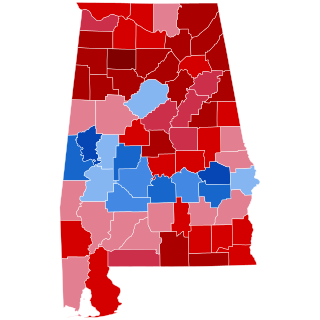
Kuniwo Nakamura was a Palauan politician who served as the President of Palau from 1993 to 2001. He had earlier served as Vice President of Palau from 1989 to 1993, under Ngiratkel Etpison.

Elections in Kenya take place within the framework of a multi-party democracy and a presidential system. The President, Senate and National Assembly are directly elected by voters, with elections organised by the Independent Electoral and Boundaries Commission (IEBC).

Elections in Gabon take place within the framework of a presidential multi-party democracy with the Gabonese Democratic Party, in power since independence, as the dominant party. The President and National Assembly are directly elected, whilst the Senate is indirectly elected.

Elections in Rwanda are manipulated in various ways, which include banning opposition parties, arresting or assassinating critics, and electoral fraud. According to its constitution, Rwanda is a multi-party democracy with a presidential system. In practice, it functions as a one-party state ruled by the Rwandan Patriotic Front and its leader Paul Kagame. The President and majority of members of the Chamber of Deputies are directly elected, whilst the Senate is indirectly elected and partly appointed.

The Kansas Republican Party is the state affiliate political party in Kansas of the United States Republican Party. The Kansas Republican Party was organized in May 1859.

The National Encounter Party is a political party in Paraguay.

General elections were held in Palau on 4 November 2008 to elect the President and members of the National Congress. The presidential election was won by Johnson Toribiong. Incumbent President Tommy Remengesau was ineligible to run because he had served the maximum two consecutive terms allowed and announced that he would run for a seat in the Senate.

The 2008 United States Senate election in Delaware was held on November 4, 2008. Incumbent Senator Joe Biden, who was also the Democratic nominee for vice president in the concurrent presidential election, faced Christine O'Donnell in the general election. Biden won re-election to a seventh term with 64.69% of the vote, his best-performing result in his senatorial career, while also being elected vice president. Biden took his oath of office in the Senate chamber with the rest of his colleagues on January 3, 2009, but resigned his seat on January 15, 2009, and assumed the vice presidency five days later. Delaware Governor Ruth Ann Minner appointed Ted Kaufman, a Democrat and longtime Biden advisor, to fill the vacant seat pending a 2010 special election in which O'Donnell once again ran unsuccessfully for the seat, losing to Democrat Chris Coons.

The 2008 United States elections were held on Tuesday, November 4, 2008, during the war on terror and the onset of the Great Recession. It was considered a Democratic wave election, with Democratic Senator Barack Obama of Illinois defeating Senator John McCain of Arizona by a wide margin, and the Democrats bolstering their majorities in both chambers of Congress, thereby marking the first time since 1992 in which the Democrats won Congress and the presidency in one election.

Johnson Toribiong is a Palauan attorney and politician. Toribiong became the president of Palau, following his victory in the November 2008 election, and left office in 2013. Before 2020 elections, Toribiong has run for president four times - in 1992, 1996, 2008 and 2012.

The election of the president and for vice president of the United States is an indirect election in which citizens of the United States who are registered to vote in one of the fifty U.S. states or in Washington, D.C., cast ballots not directly for those offices, but instead for members of the Electoral College. These electors then cast direct votes, known as electoral votes, for president and for vice president. The candidate who receives an absolute majority of electoral votes is then elected to that office. If no candidate receives an absolute majority of the votes for president, the House of Representatives elects the president; likewise if no one receives an absolute majority of the votes for vice president, then the Senate elects the vice president.

General elections were held in Palau on 4 November 1980 to elect a president, vice-president, Senate and House of Delegates. All candidates ran as independents. Haruo Remeliik won the election for president with 31.2% of the vote, whilst Alfonso Oiterong was elected vice-president. Voter turnout was 80%.

General elections were held in Palau on 30 November 1984 to elect a President, Vice-President, Senate and House of Delegates. All candidates ran as independents. Incumbent Haruo Remeliik won the election for President with 50.9% of the vote, whilst Alfonso Oiterong was re-elected to the post of Vice-President.

General elections were held in Palau in 1992 to elect a President, Vice-President, Senate and House of Delegates. The first round of the presidential election took place on 22 September, whilst the run-off election and the election for the House of Delegates and Senate took place on 4 November. All candidates ran as independents. Despite finishing second in the first round of voting, Kuniwo Nakamura was elected President, whilst Thomas Remengesau Jr. won the election for Vice-President. Voter turnout was 74.3% in the presidential elections on 22 September and 83.9% on 4 November, and 83.2% for the legislative elections.
General elections were held in Palau on 6 November 2012. Former president Tommy Remengesau defeated his successor, incumbent Johnson Toribiong, who had been elected in 2008. Antonio Bells was elected vice-president, defeating Kerai Mariur, who had finished first in the primary elections on 26 September.

General elections were held in Peru on 8 April 1990, with a second round of the presidential elections on 10 June. This exercise was to elect the President of the Republic, two vice presidents, and the members of Congress. The elections filled 180 seats in the Chamber of Deputies and 60 seats in the Senate for the 1990-1995 governmental period.

The 1844 United States elections elected the members of the 29th United States Congress, and took place during the Second Party System in the midst of the debate over whether to annex Texas. Texas and Iowa joined the union during the 29th Congress. Democrats retained control of the House and took back control of the presidency and the Senate, re-establishing the dominant position the party had lost in the 1840 election.

The 2024 United States elections were held on Tuesday, November 5, 2024. In the presidential election, former president Donald Trump was elected again and JD Vance was elected to be vice president. In addition, all 435 seats in the United States House of Representatives and 34 of the 100 seats in the United States Senate were contested to determine the membership of the 119th United States Congress. Thirteen state and territorial governorships and numerous other state and local elections were also contested. The following presidential election will be the 2028 presidential election.

The 2020 United States presidential election in Alabama took place on Tuesday, November 3, 2020, as part of the 2020 United States presidential election in which all 50 states and the District of Columbia participated. Alabama voters chose nine electors to represent them in the Electoral College via a popular vote pitting incumbent Republican President Donald Trump and his running mate, incumbent Vice President Mike Pence, against Democratic challenger and former Vice President Joe Biden and his running mate, United States Senator Kamala Harris of California. Also on the ballot was the Libertarian nominee, psychology lecturer Jo Jorgensen and her running mate, entrepreneur and podcaster Spike Cohen. Write-in candidates were permitted without registration, and their results were not individually counted.

General elections were held in Palau on 3 November 2020 to elect a President and the National Congress.



















